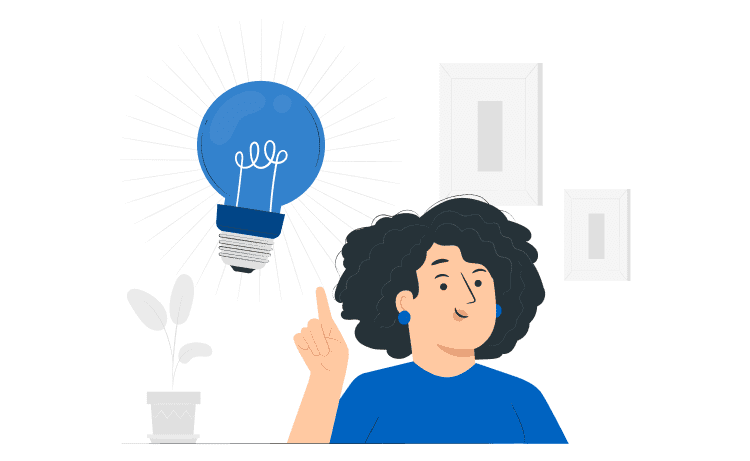
Healthcare App Ideas for Startups



The popularity of healthcare apps has grown drastically over the past few years. The number of medical apps on Google Play and Apple App Store has doubled over recent years, reaching over 50,000 apps on each platform as of 2022.
Public hospitals use apps for their operational efficiency. Private clinics implement them to increase competitiveness in the market. So how can you keep up with trends and get great medical app ideas?
Content
The world of technology is changing rapidly, with more exciting innovations appearing every day. It is especially true for highly-competitive mobile solutions, including the medical industry.
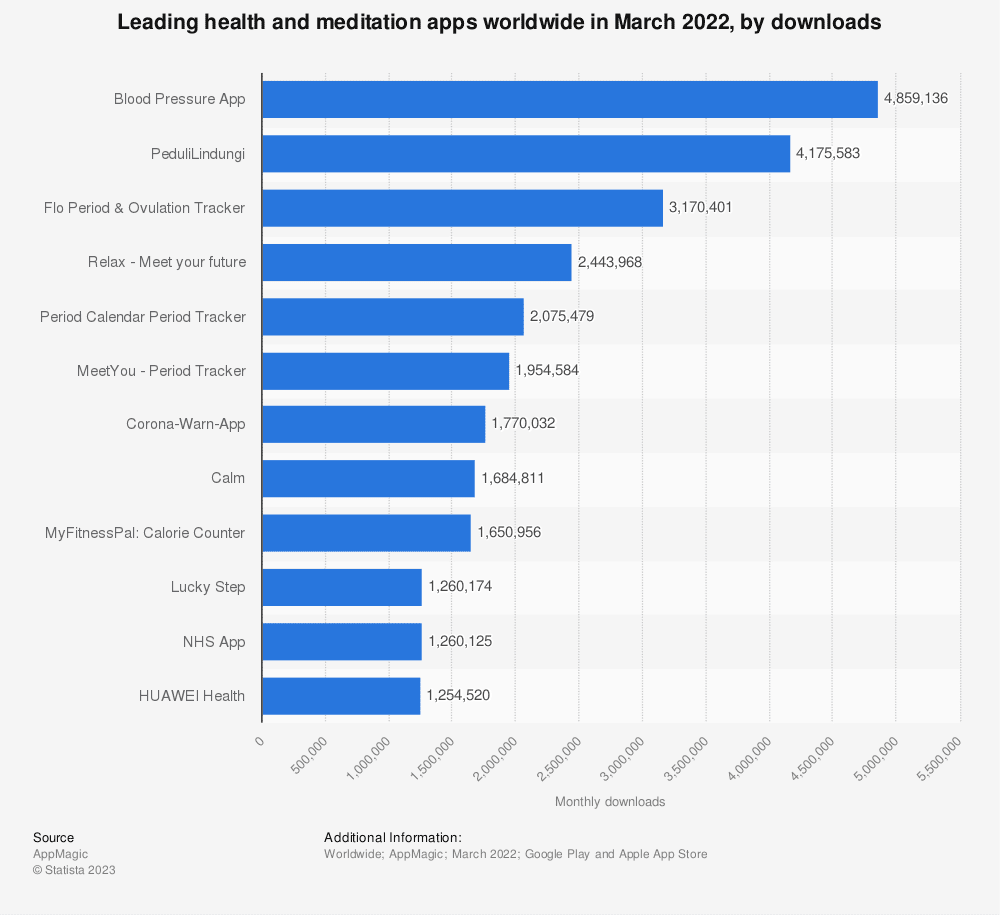
Therefore, it is essential to be aware of the trends and take note of the promising ones. According to experts, there will be five leading technologies in healthcare in 2024:
You can get insights and generate actionable ideas for building medical apps based on these technologies. As a result, they will better serve the needs of patients, medical doctors, and clinic administrators and be in demand.
Developing a healthcare app can be a complex and challenging process, yet with dedication and persistence, it can also be incredibly rewarding. Ultimately, your app has the potential to make a real difference in people’s lives. Put enough effort into bringing your idea to fruition, and you can become the author of the new Flo or HeadSpace – both incredibly successful medical startup apps. Scroll on and see more ideas below.
Doctors and medical professionals constantly seek ways to stay up-to-date with the latest research, clinical guidelines, and patient information. Healthcare apps can provide valuable resources for doctors, including educational and knowledge database apps and translation apps to assist with communication between patients and providers.
Professional Education powered by AR and VR may revolutionize healthcare. Many novice and practicing doctors can improve their qualifications in distant hospitals and universities, virtually studying the human body. Doctors and nurses can test new methods before applying them to patients. Simulation training, like in this case by Glorium, reduces the probability of medical errors. Havaldar says it improves doctors’ work with mechanical ventilation and hemodynamic monitoring.

Directory medical app ideas relate to personnel education. It combines AR and VR with big data and advanced analytics. This extensive encyclopedia provides complete and up-to-date information on medical topics in electronic format. It contains diseases, symptoms, methods of examination and diagnosis, the effectiveness and compatibility of drugs, and preventive measures. All data is based on industry research and expert opinion to ensure reliability in practice.
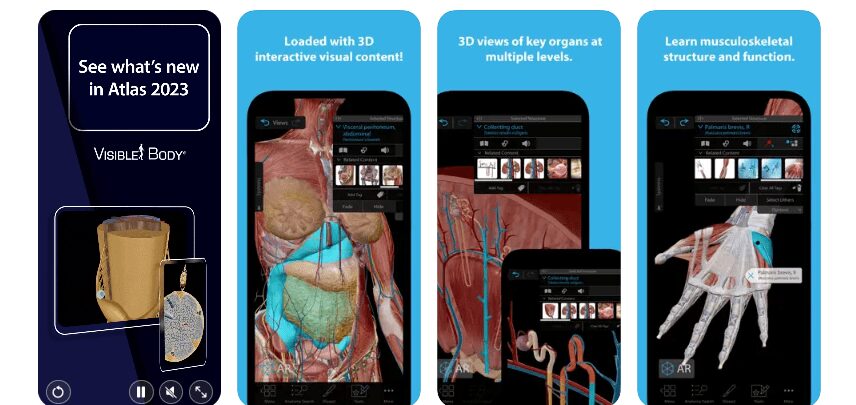

Well-being tracking of patients is essential during quarantine restrictions. The mobile app with integrated IoT is one of the best medical startup ideas. Wearable devices like bracelets, watches, and glasses are mini-computers with sensors and wireless connections to smartphones. They analyze the physical activity and parameters of the environment. The doctor can access the patient’s health indicators in real-time and make decisions about emergency care and treatment adjustments.
![]()
Multilingual adaptation breaks language barriers in communicating with foreign patients. Lack of information about a patient’s current condition has serious consequences, as the physician cannot make an initial diagnosis and provide appropriate care. Multilingual applications with experienced industry translators allow doctors to interpret the symptoms and explain the medication regimen to patients speaking a different language.
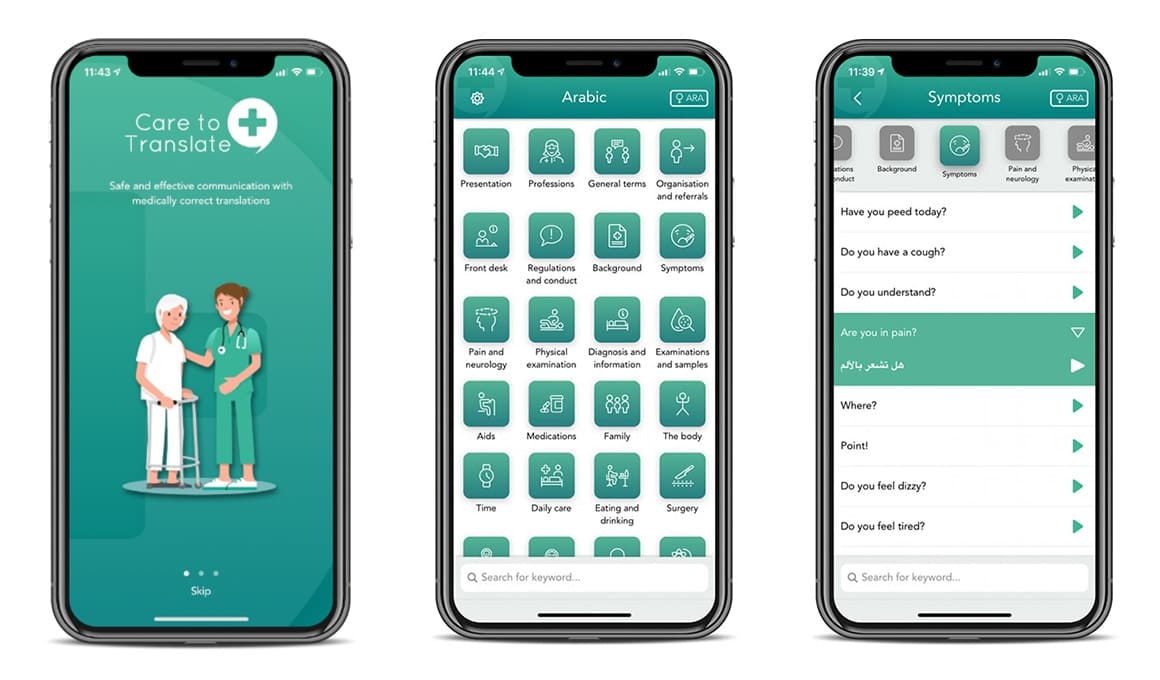
Healthcare apps for patients provide users with easy access to information and tools to help them manage their health and well-being. From psychological support to self-diagnostic tools and treatment reminders to remote consultations, healthcare apps bring patients a range of resources to help them better understand and manage their health.
Psychological support and mental health apps will always be relevant. Life’s fast and hectic pace leads to depression, resulting in deteriorated physical and mental health. How does the app help? First, a user consults with a counselor. Then, based on the specialist’s recommendations, they set up their app with integrated IoT and AI software. The app tracks a user’s mood and activity, eliminates anxiety, improves mood with meditation and relaxing tunes, advises coping with panic attacks and nervous conditions, and sets a daily routine.
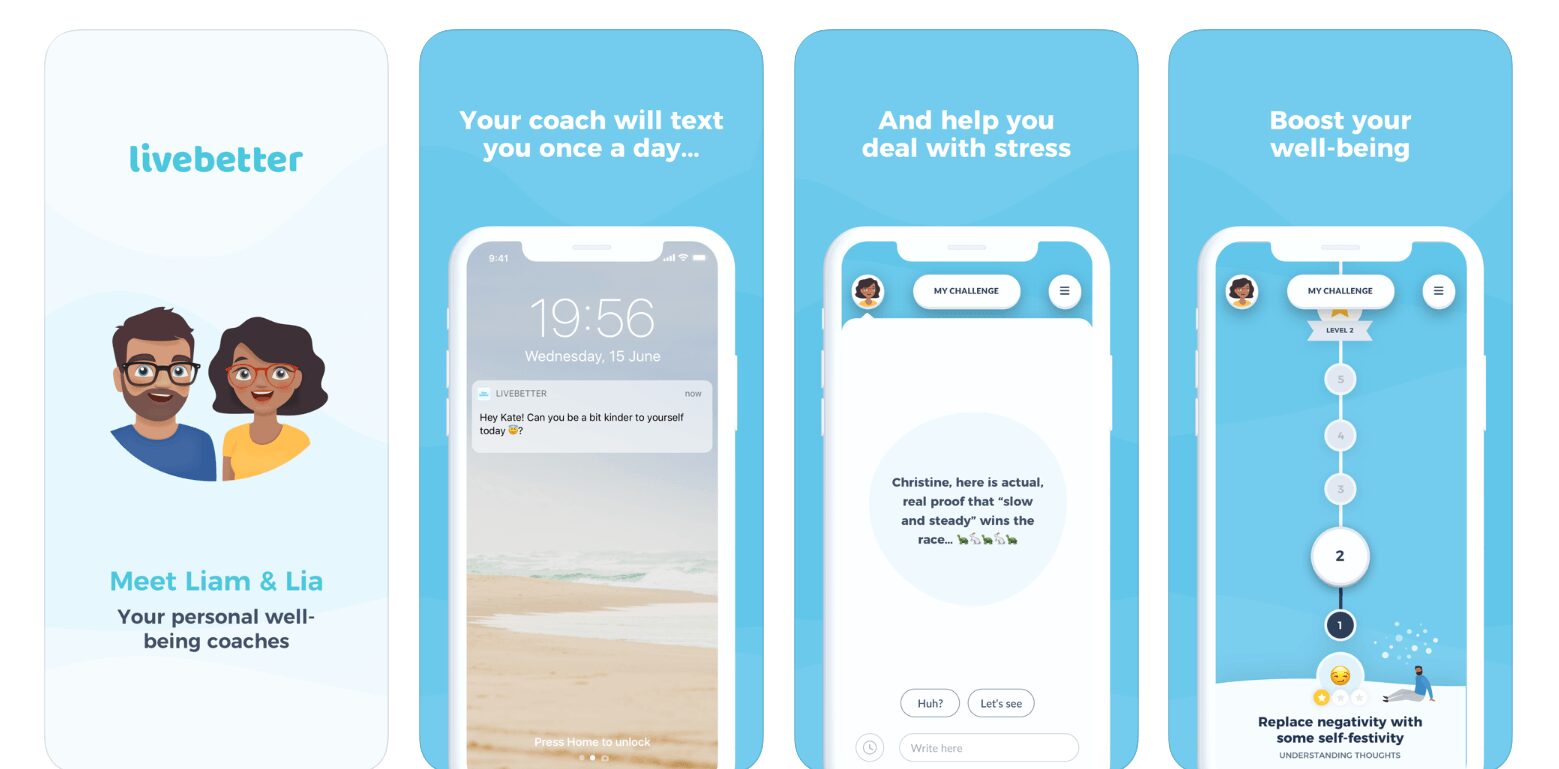

Remote consultations can play a significant role in diagnosing and scheduling examinations. The pandemic has made communicating with doctors 24/7 vital, and telemedicine solutions solve this problem. It only takes a smartphone to contact a specialist, get a consultation in a convenient way (text, audio, or video), and pay for it. According to Statista, the industry will grow to $175 billion by 2026, underlining the promise of such ideas for healthcare apps.
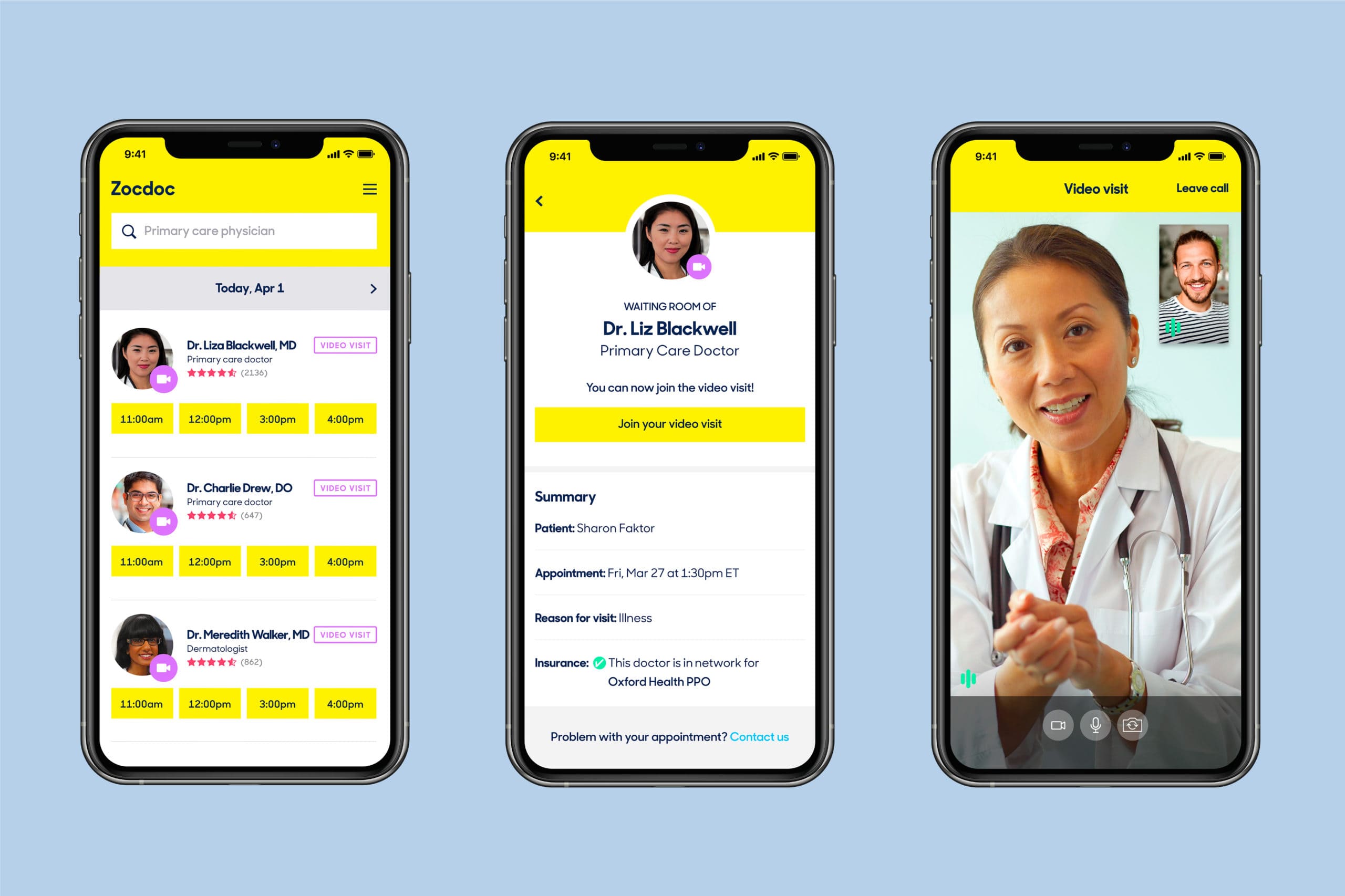
Self-diagnosis and self-control of health save much time by avoiding re-examination. A self-diagnosis app can be a list of the first symptoms of a disease or a questionnaire where you select your symptoms to get information about a possible coronavirus infection, for example. Self-monitoring of health includes apps for women that track the menstrual cycle and pregnancy and solutions with integrated wearable devices (fitness bracelets, smart watches).
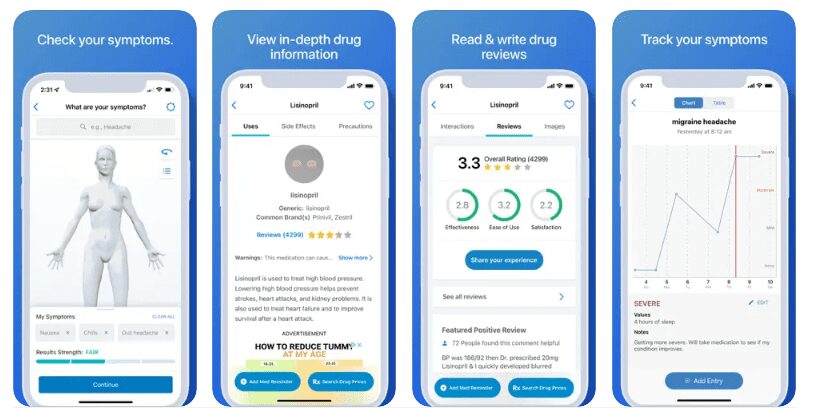
Treatment reminders improve the effectiveness of treatment directly through timely medications and examinations. An intelligent calendar app is an excellent medical app idea for patients treated at home. Just schedule drugs and additional tests for the app to remind you.
This app may also offer advice on taking prescribed medications (for example, what foods and drinks not to combine with them), getting tested (how to prepare for tests), and noting new symptoms and reactions to medications. There may also be options for creating PDF reports and mailing them to the doctor by e-mail or instant messaging.
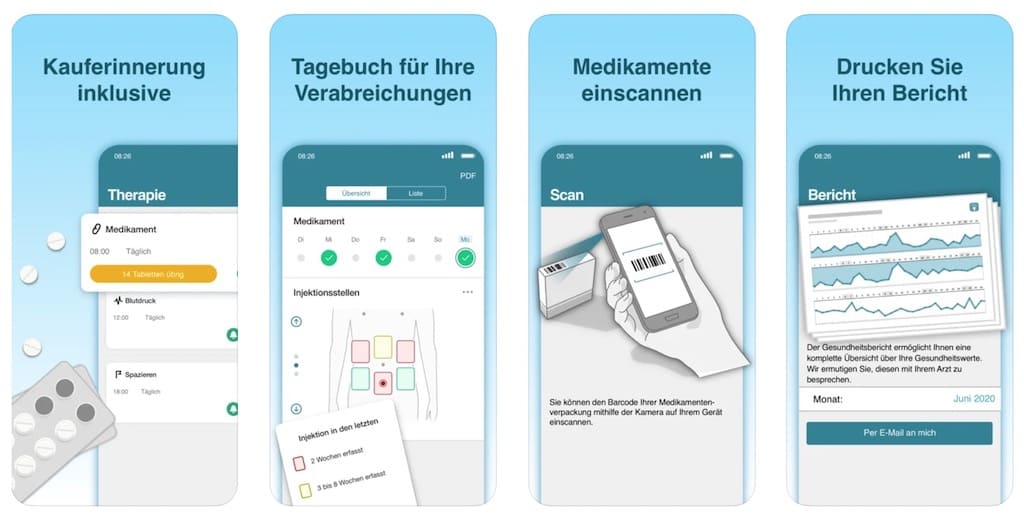
Control over the meal schedule, tracking every meal time and calories manually, takes much time and complicates the task of healthy eating. Therefore, an app making a grocery list based on the user’s daily calorie intake is helpful. It also offers automatic calculation of eaten grams/calories. Enriching the functionality of the digital solution with a database of recipes and popular meals is possible.
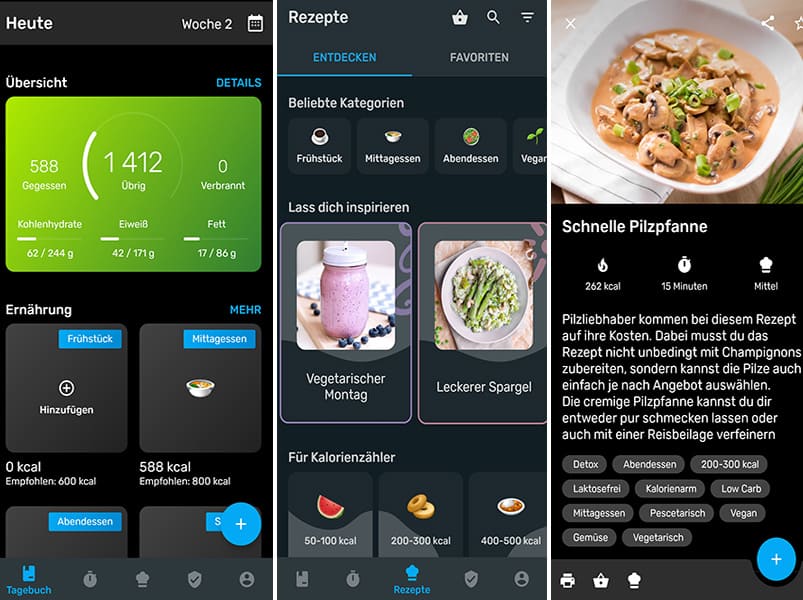
Home gym with online training courses is relevant because of Covid restrictions and digitalization of all areas of life. The app can contain paid and free plans. Users choose a sport, a trainer, and the intensity of classes. The system selects the best options and starts a workout cycle according to the criteria. Developers can also add progress tracking, health and fitness recommendations, and online group or individual workouts.
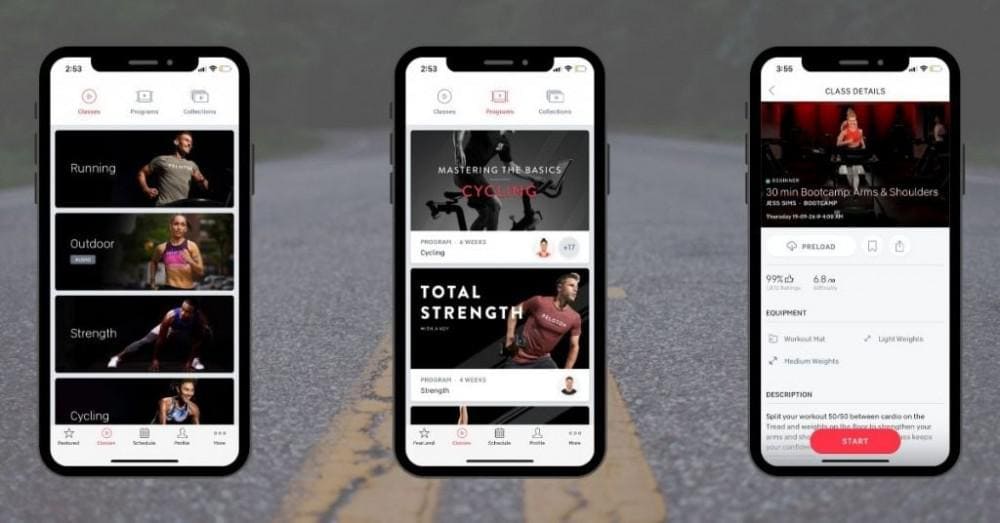
There are many more ideas for healthcare apps that enhance healthcare professionals’ and patients’ lives and make a startup successful.
More examples of apps for doctors:
More examples of apps for patients:
The application should meet the target audience’s requirements and industry standards and be designed with intelligent technologies.
The healthcare app industry is growing at an unprecedented rate. This is driven by the demand for mobile solutions in the healthcare industry, which is essential in increasing operational efficiency in public.
hospitals and competitiveness for private clinics. To keep up with the trends in healthcare app development, experts suggest focusing on five leading technologies that will revolutionize healthcare in 2023: IoMT, AI, EHR, AR/VR, and telemedicine. These technologies present vast opportunities for innovative medical app ideas that serve the needs of patients, medical doctors, and clinic administrators.
By leveraging these opportunities, startups can build apps offering better services to medical professionals and patients.
Remember that to develop a successful healthcare app, you must take care of data safety and compliance with industry rules. Choosing a reliable and experienced provider like Glorium Technologies is best to ensure you get it right the first time.
Current trends in healthcare app development include telemedicine, wearables and remote monitoring, personalized medicine, artificial intelligence (AI), and machine learning.
Some popular healthcare app ideas for startups in 2023 include mental health apps, chronic disease management apps, medication management apps, nutrition and fitness apps, and telemedicine apps.
Healthcare apps can use AI and machine learning to improve patient care in various ways, such as enhancing diagnosis accuracy, predicting disease outbreaks, personalizing treatment plans, and identifying patients who may be at risk for certain conditions.
The popular features of a healthcare app include, but are not limited to, the ones listed below:
Several measures need to be taken to ensure patient data privacy and security in healthcare app development. Encryption, secure data storage, and two-factor authentication for user accounts should be implemented. Healthcare apps should comply with HIPAA regulations and GDPR guidelines to protect patient information. Regularly updating software to address security vulnerabilities is crucial.

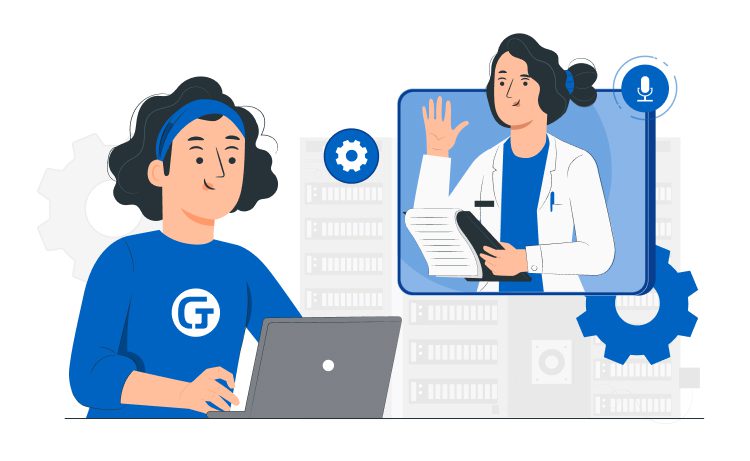
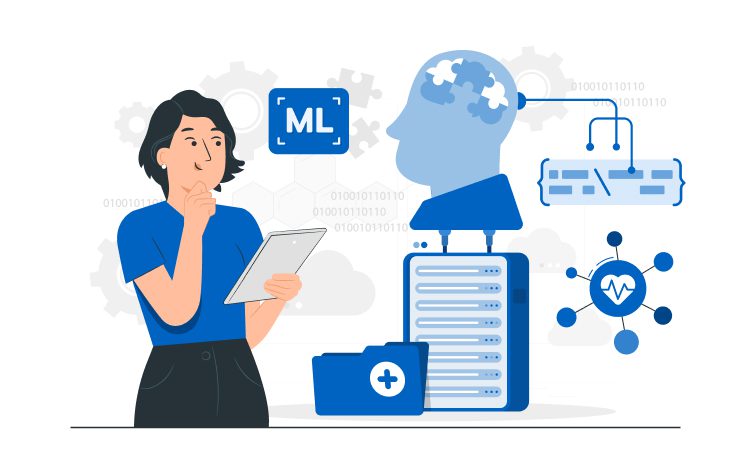
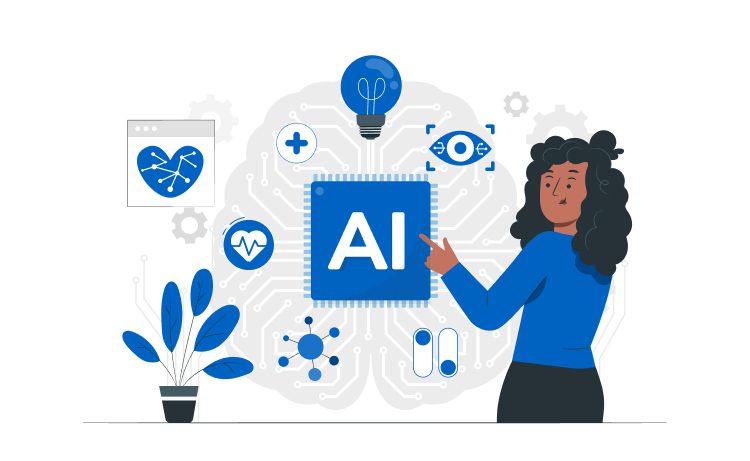
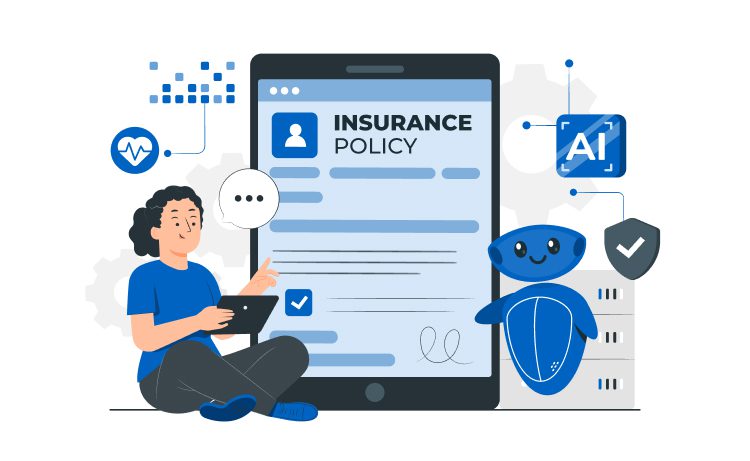
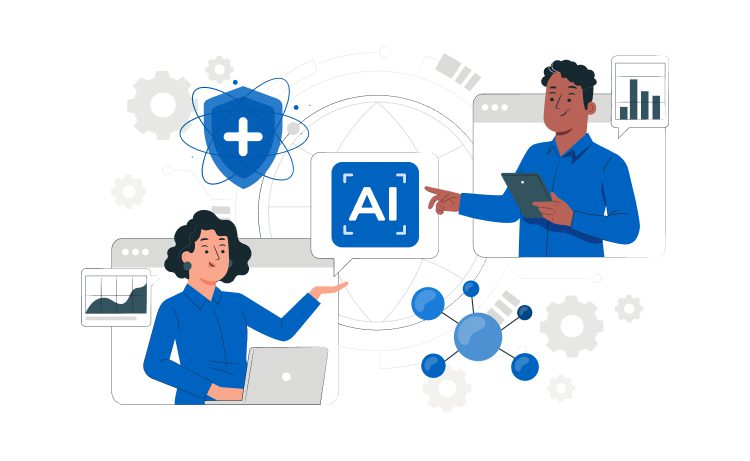
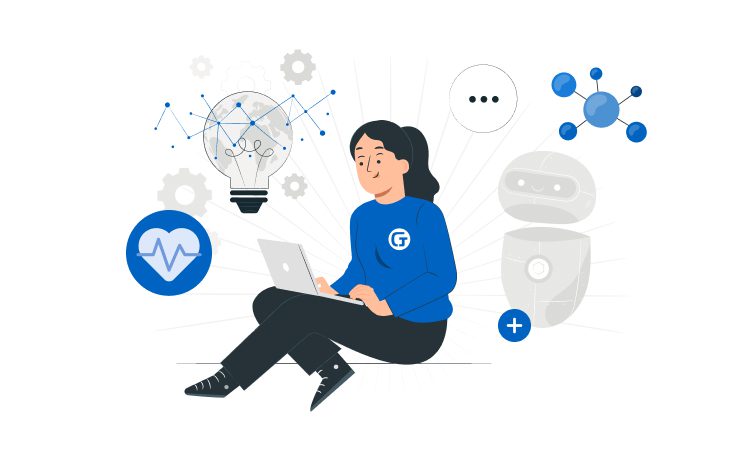

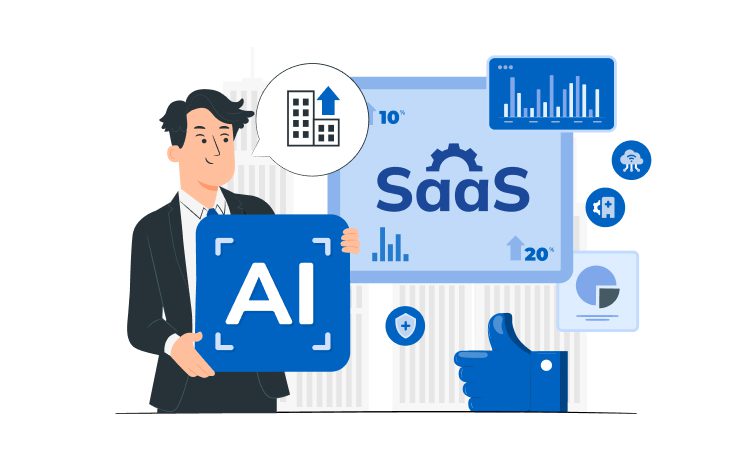
| Cookie | Duration | Description |
|---|---|---|
| cookielawinfo-checkbox-analytics | 11 months | This cookie is set by GDPR Cookie Consent plugin. The cookie is used to store the user consent for the cookies in the category "Analytics". |
| cookielawinfo-checkbox-functional | 11 months | The cookie is set by GDPR cookie consent to record the user consent for the cookies in the category "Functional". |
| cookielawinfo-checkbox-necessary | 11 months | This cookie is set by GDPR Cookie Consent plugin. The cookies is used to store the user consent for the cookies in the category "Necessary". |
| cookielawinfo-checkbox-others | 11 months | This cookie is set by GDPR Cookie Consent plugin. The cookie is used to store the user consent for the cookies in the category "Other. |
| cookielawinfo-checkbox-performance | 11 months | This cookie is set by GDPR Cookie Consent plugin. The cookie is used to store the user consent for the cookies in the category "Performance". |
| viewed_cookie_policy | 11 months | The cookie is set by the GDPR Cookie Consent plugin and is used to store whether or not user has consented to the use of cookies. It does not store any personal data. |